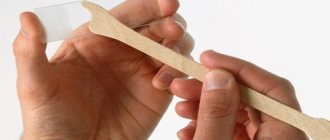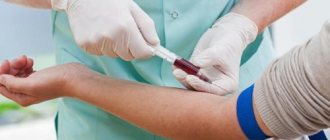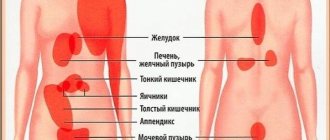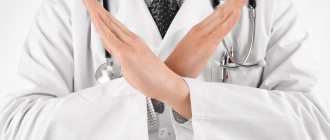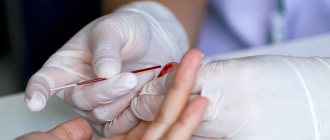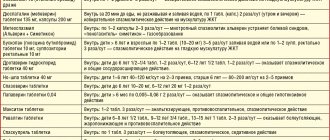The bacteriological laboratory of the FBUZ “Center for Hygiene and Epidemiology in the Lipetsk Region” provides services to the population to conduct bacteriological research:
- intestinal microflora for dysbacteriosis;
- for the intestinal group of infections (disgroup);
- urine test for sterility;
- swabs from the throat and nose for microflora, diphtheria, Staphylococcus aureus to determine the sensitivity of the isolated microorganisms to antibiotics.
Material for research can be submitted directly to the laboratory, bypassing various medical centers. The main condition is to correctly collect and deliver the material.
Urine microflora analysis
Biomaterial: urine, collected in a disposable sterile container with a screw cap.
This test is aimed at identifying microbial cells in urine. In a healthy person, the urine in the kidneys and bladder is sterile. • Indications for use: diagnosis of infectious inflammatory diseases of the kidneys and urinary tract (pyelonephritis, cystitis, urethritis, etc.).
Units of measurement: The type of pathogen identified, its quantity, as well as its sensitivity to antibiotics are indicated.
Normal values (adults): Normally there are no bacteria in the urine.
Urine collection rules
1. Take material for analysis before starting antibacterial treatment, or 2-3 weeks after discontinuation of these drugs.
2. Sampling of morning urine sample after overnight abstinence.
3. Carry out a thorough toileting of the external genitalia.
4. Open the sterile jar without touching the inner surface of the lid.
5. Collect an average portion of urine in the amount of 3-5 ml.
6. Deliver to the laboratory within 2 hours.
Stool analysis for the study of intestinal microflora for dysbacteriosis
Biomaterial: Cal.
Feces for dysbacteriosis is a modern laboratory diagnostic method that allows you to assess the state of the intestinal microflora.
Indications for use: diseases of the intestines, liver, pancreas, immune disorders, long-term therapy with antibiotics, immunosuppressants, steroid hormones.
Units of measurement: CFU (colony forming units) per 1 g of feces.
Rules for collecting stool for dysbacteriosis
1. 7-10 days before the test, stop taking antibacterial and bacterial medications (containing bifidobacteria, lactobacilli, E. coli, etc.).
2. The material is feces after natural defecation, which is collected from different places of feces in the amount of 1-2 grams (pea) in a sterile disposable container with a screw cap and a spoon.
3. Before collecting the analysis, urinate into the toilet, then collect the stool by natural defecation into a bedpan (be careful not to get any urine).
4. The material is delivered to the laboratory within 2 hours from the moment the analysis is collected. In special cases, sampling can be done in the evening (the day before), in which case the bottle with feces should be stored in a cold place at a temperature of +5 +10 C 0 (refrigerator conditions).
Analysis for intestinal infections
Biomaterial: Cal.
Stool culture for disgroup is a common test performed in the laboratory. It is carried out if there are suspicions of intestinal diseases, a sign of which may be, for example, abnormal stool, vomiting, etc. In other words, this is an early diagnosis of acute intestinal diseases, including for the purpose of confirming the diagnosis of salmonellosis, dysentery, etc.
Rules for collecting stool for intestinal infections
1. The material is feces after natural defecation, which is collected from different places of feces in the amount of one teaspoon into a sterile disposable container with a screw cap and a spoon.
2. The material is delivered to the laboratory within 2 hours from the moment the analysis is collected. In special cases, sampling can be done in the evening (the day before), in which case the bottle with feces should be stored in a cold place at a temperature of +5 +10 C 0 (refrigerator conditions).
Material collection: from the throat, nose for microflora, diphtheria, Staphylococcus aureus will be carried out by laboratory specialists.
Before carrying out the collection, it is recommended to adhere to the following rules:
- do not eat, drink or brush your teeth for two hours;
- clear the nasal passages of mucus accumulation;
- if you are taking antibiotics, it is better to conduct the study 3 days after stopping them.
By contacting us, you can appreciate the following advantages:
- exclusion of transfer of material to other laboratories;
- storing results in electronic form, eliminating data loss;
- confidentiality;
- low prices due to all studies performed directly in our laboratory.
We are located at:
Lipetsk, st. Gagarina, 60a, 3-storey building, 1st entrance, 2nd floor (bacteriological laboratory).
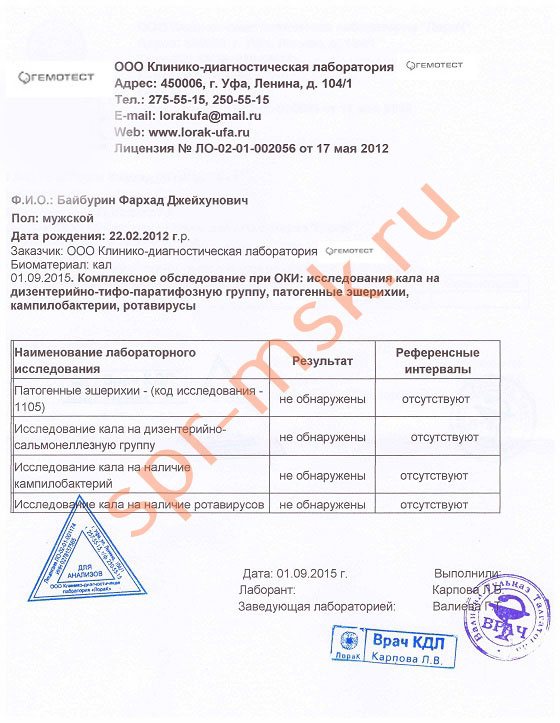
An imbalance in the ratio of beneficial and pathogenic bacteria in the intestinal microflora manifests itself in a wide range of symptoms. Unhealthy stool, allergic reactions, food rejection, skin rashes, abdominal discomfort - this is not a complete list of symptoms for which doctors recommend undergoing a stool test for dysbacteriosis. Based on the data obtained, if the fact of microflora imbalance is confirmed, the specialist will be able to prescribe an individual treatment program. If you feel any problems in the functioning of the digestive system, or notice the presence of one of these symptoms, then do not hesitate to contact a medical facility. A timely hemotest will allow you to detect the problem at an earlier stage and ensure correct diagnosis. Such a study is mandatory for adolescents who suffer from allergic reactions and respiratory infections, and for newborns who are at risk. Such a certificate may be required when applying for employment in the catering industry. If the standard procedure for completing it does not suit you, then it makes sense to use an alternative one.
Favorable way of registration
The optimal solution in a situation where issuing a certificate seems to be a formality is to purchase it. There is no doubt that there are benefits in terms of saving time, but you will also feel the benefits from a financial point of view. Over time everything becomes clear. Every person who has ever encountered our healthcare system understands this very well. Morally outdated buildings of state clinics, lack of modern equipment, unmotivated medical specialists, huge queues, nervous scandals. But there is also a serious risk of infection, because a huge number of people visit such institutions to receive specialized care. As a result, you will definitely lose a lot of time, which can be problematic during a busy work or study schedule. To undergo a laboratory test, you will first have to receive a referral, and this doubles the number of queues ahead of you. Going to a private clinic will be extremely expensive, especially when it comes to such a specific certificate. So it turns out that when you decide to buy a crust, you will receive benefits in terms of saving time and money.
Tests for intestinal infections hemotest
Tests quickly and without queues
Laboratory Hemotest is a medical laboratory that performs a wide range of laboratory tests, as well as a wide range of hardware diagnostics. Paid medical tests - more than 650 branches have been opened in various districts of Moscow, cities in the Moscow region and other regions. Here you can quickly and without queues take tests: clinical, biochemical, serological, genetic, hormones, tumor markers and cardiac markers. In addition, we perform tests for allergens, microbiological tests, paternity tests, perform PCR diagnostics of infections, and diagnose autoimmune and systemic diseases. Our company has been certified according to the international quality management system ISO 15189:2007 and 9001:2015.
Our advantages
- Tests in the Hemotest medical laboratory are recognized by all state medical and preventive institutions.
- Almost all studies can be completed in one day. You can take any tests anonymously.
- The results can be obtained on the website in your “personal account”, by email, by fax or by courier to your address.
- The laboratory uses the latest generation test systems; expert-class equipment from the world's leading manufacturers. Our specialists visit your home to collect biomaterial. In Moscow, visiting a brigade is a free service. You pay only the cost of taking biomaterial and the cost of conducting research at the prices of the laboratory department.
Special offers
Laboratory Gemotest offers a discount for patients under 25 years of age and over 55 - “Age - 5%”.
Bonus program “Save for health!” allows you to write off bonuses on any day
up to 25%. Each patient becomes a participant in a bonus program with no entry thresholds. The Hemotest medical laboratory performs medical tests for the whole family. Promotions are held regularly and there are special offers for studies for different groups of patients.
Reliable health information
When choosing where to get tested inexpensively in Moscow and other cities of Russia, hundreds of patients turn to the Gemotest medical laboratory every day to quickly receive reliable information about their health. Branches of the Hemotest Laboratory in Moscow are open in all districts of the city, almost near every metro station. On the website you will find all the addresses of laboratory departments, opening hours, schedules for taking biomaterial. Additionally, directions for public transport are posted, and departments where urgent tests are accepted are marked. The laboratory departments have rooms for ultrasound diagnostics, radio wave surgery, ECG, and MRI. Bank cards are accepted for payment. Use the online calculator and get the order amount. Blood collection is paid for once, even if you donate blood for several indicators at once - for example, Rh factor, antigens and biochemistry.
24/7 – free consultations
by phone and 8 (800) 550-13-13
- Consultations with therapists and medical specialists on indications for testing and interpretation of research results
- Consultations on the rules of preparation for medical tests in the Gemotest medical laboratory
- Information on the work schedule of Hemotest laboratory departments, time restrictions on receiving biomaterial and other patient questions
Where to buy a certificate without problems
Look for where to buy a certificate of the results of laboratory tests of stool for dysbacteriosis, then contacting our company will fully justify itself. Of course, there are plenty of companies that offer services for the production of medical documents, but ensuring the maximum result is not so easy. Document production is a complex process that requires the use of modern equipment and original stamps. We have the tools to perform at the highest level, allowing us to remain leaders. Customers are primarily interested in the speed of order fulfillment; we ensure maximum results. The certificate will be in your hands in the shortest possible time, because it is prepared by trusted professionals. We will complete orders of any level of complexity, and you can be calm about the end result. Reputation and customer trust are paramount, and therefore we simply cannot afford to lower our plan. The crust will be ready within the specified time frame, so you don’t have to wait.
Popular inquiries
To the child's pool
Price: from 1700 rub.
Price: from 1490 rub.
Help for the traffic police
certificate of good conduct
Child's medical record
Features of an infectious disease
The human intestine is a very specific organ. It develops many bacteria that can be classified as normal microflora.
Some bacteria do not cause any harm to the body, while others are called opportunistic microorganisms. After any infection enters the body or a decrease in immunity, they become harmful and can become an impetus for the occurrence of various diseases. Laboratory diagnosis of intestinal infections is designed to promptly detect the presence of these pathogenic “residents” in the body.
Intestinal infections can be of bacterial or viral origin. The most common bacterial forms include dysentery and salmonellosis. These pathologies arise due to the entry and reproduction of pathogenic pathogens in the gastrointestinal tract. Infectious processes of this type develop after eating with unwashed hands, drinking contaminated water, eating poorly washed vegetables and some fruits, and other unprocessed foods.
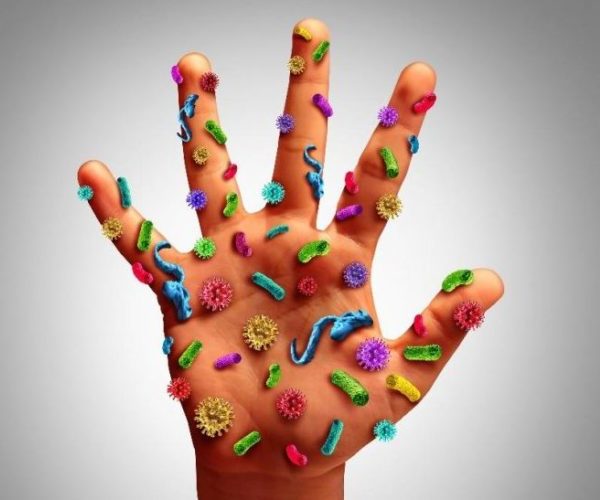
Opportunistic bacteria can also cause disease. Especially often they begin to manifest themselves in conditions when the body is weakened. This could be either dysbacteriosis or some other digestive disorders. Such diseases can be caused by the presence of E. coli in the body.
Infectious viral diseases are also quite common. Particularly common among them are enterovirus and rotavirus infections. Infection can occur through contact or airborne droplets.
Stool examination, especially for children, is carried out in order to establish an accurate diagnosis. After all, the symptoms of some intestinal diseases are so similar that only through a thorough diagnosis can it be determined for what reason they arose.
Microbiological examination for intestinal infections
Stool tests, or more precisely, culture on nutrient media, are necessary precisely to identify pathogenic microorganisms. Immediately before sowing, a microscopic examination of the biomaterial is carried out. However, it is often impossible to identify bacteria in this way, since they may be present in small quantities in the test sample.
At the same time, pathogenic microorganisms multiply quite actively in nutrient media. They form colonies with a characteristic morphology. To identify representatives of a particular group, special selective media are used. Endo and MacConkey media are suitable for enterobacteriaceae, but some members of the family, for example Salmonella, are sown in blood culture. But the causative agent of dysentery grows well on the surface of simple nutrient media.
Sometimes opportunistic and beneficial microorganisms can be found in the sample of material being studied.
After colonies have formed on the surface of the nutrient medium, microscopic examination is again performed, but now of pure cultures. It is after this that infectious pathogens can be identified with high accuracy.
If pathogenic microorganisms have been identified in the biomaterial, then the next stage of the study must necessarily be a test for their sensitivity to various antibiotics.
To obtain the result, the identified bacterial colonies are transferred to a cumulative nutrient medium and begin to act with different types of antibiotics. The most commonly used method is the disk method. Discs impregnated with antimicrobial agents are placed on the surface of the nutrient medium coated with a suspension of bacterial cells. The degree of sensitivity is determined by whether there is colony growth around each disc and what is the zone of sterility next to it. The closer the bacteria “come” to the disk, the less effect it has on them.
Stool analysis by PCR
Naturally, when diagnosing intestinal infections, stool is often examined. This is not surprising, because it is he who will give the clearest picture of the disease. It is necessary to take a stool test from the rectum in order to determine which microorganism could cause the existing disease. A fairly effective clinical diagnostic method is polymerase chain reaction (PCR). This method is considered fast.

The PCR method is based on the fact that fragments of RNA or DNA of pathogenic bacteria can be detected even in a small amount of biomaterial. This analysis is suitable for studying absolutely any human biofluid. In the case of intestinal infections, stool is taken, since it contains the highest concentration of the pathogen.
Using PCR, it is easy to detect not only the presence of bacteria in biological material, but also to determine their number in the intestines. This is an additional advantage for diagnosing infections caused by opportunistic microorganisms. Normally, they are contained in a person’s normal flora, but if their concentration is increased, we can talk about the development of a pathological process.
In addition, stool testing using the PCR method, in contrast to the cultural microbiological method, makes it possible to identify not only bacteria, but also viruses.
Rapid test for rotavirus intestinal infection
Rotavirus infection or intestinal flu is a specific infectious disease caused by rotaviruses. A common route of transmission of this infection is fecal-oral. This infection enters the body mainly after drinking unprocessed milk or any food with dirty hands.
In a clinical setting, children often undergo a rapid test that helps determine the presence of rotavirus infection in the body. Children's feces are taken for research. The test strips included in the kit are dipped into the selected biomaterial for approximately 10 minutes. Once the time is up, laboratory technicians can accurately evaluate the test results.
The rapid test reacts to a specific rotavirus antigen. If the strip changes color, then the result is positive. That is, rotavirus infection is present in the body. If the color of the strip remains unchanged, then the diagnosis is incorrect and you need to look for other causes of the disease.
Quality above all
No amount of production speed will be an excuse if the quality is not up to standard. That’s why we pay special attention to the quality of the medical certificates we provide. Clients contacting us can be calm when presenting such a crust. You are insured against any checks, because we do not make fakes, only original samples. The key to this is that we cooperate with medical centers in the capital. They necessarily have laboratories, so they carry out this kind of research. Accordingly, the certificate issued by us is carried out on an official form, taking into account all norms and requirements. It is filled out by professional medical staff who are well aware of the specifics and have serious experience in this field. The main thing you get is peace of mind. You don't have to worry about inspections. Outright fakery will lead to nothing but negative consequences. You will definitely have to give up implementing your employment plans, because no one will trust you. With our company you will not face such problems. Excellent quality work guaranteed.
Preparation for the procedure
When preparing to collect material, you should follow a number of rules that are designed to ensure the accuracy of the data obtained:
- You should stop taking medications a few days before the test, especially those that affect the intestinal microflora.
- In preparation for analysis, the diet is reviewed, excluding fatty and fried foods that contain a large amount of seasonings. It is necessary to avoid products that contribute to increased gas formation.
- During the preparation period, you should not drink alcoholic drinks, energy drinks or sparkling water.
- You cannot administer rectal suppositories or use enemas for treatment.
- At this time, X-ray examinations using contrast agents are not performed.
- The material is delivered in a sterile, tightly closed container.
- When collecting material, there should be no contact of feces with surfaces that may contain viruses and bacteria.
- Urine and water should not get into the stool
- Before receiving feces, it is necessary to carry out hygienic procedures and completely empty the bladder.
The study is not recommended during menstruation.
Affordable price
What's the point of all the benefits offered if the price prevents customers from taking advantage of those benefits. We are aware of this, so we pursue an adequate pricing policy, which is designed for clients with a standard income level. Obtaining a certificate for a stool test for dysbacteriosis does not seem to be a problem. This is guaranteed to be cheaper than getting this crust done at a private clinic. The cost will pleasantly surprise you, because we do not artificially inflate prices. Moreover, regular customers have the opportunity to receive an additional discount. The company regularly holds promotions to reduce the cost of certificates, which are most popular among customers.
Norms and interpretation of the result
To evaluate the result obtained, special tables are used, which show the norm of the content of microorganisms of various types in a unit of the test substance. For example, the norms for the content of opportunistic microorganisms in the stool of a healthy person are as follows:
- Staphylococci ≤104.
- Fungi of the genus Candida ≤104.
- Peptococci 109–1010.
- Fusobacteria 108–109.
- Bacilli 109–1010.
- Clostridia ≤104.
Exceeding these standards is a sign of pathology, for example, developing dysbiosis.
The study may reveal the presence of pathogenic microorganisms that cause the following diseases:
- Shigella causes bacterial dysentery, is highly virulent and quickly causes severe intoxication of the body.
- Salmonella leads to salmonellosis and is resistant to many types of exposure. One of the types of this microorganism is the causative agent of typhoid fever.
- Vibrio cholerae is the causative agent of cholera, which is associated with various types of purulent inflammation.
- Pseudomonas aeruginosa. Causes infectious enterocolitis and other types of infectious inflammation, is highly toxic and resistant to antibiotics.
The presence of pathogenic microorganisms is a sign of infection; this situation requires contacting a doctor, even if the patient is not worried about anything yet.
How to place an order
The ordering algorithm is designed so that the client spends as little time as possible. Everything is very simple, just go to the company’s website, find a suitable medical certificate in the list and add it to your orders. We offer a wide range of medical documents so that each client can easily find the required sample. Immediately after this, the company’s operators will call you to clarify the necessary data. That's all, the procedure will take you no more than 10 minutes. You yourself indicate a convenient time and place to meet the courier. We do not require prepayment, because we build cooperation on trust. The company guarantees complete confidentiality. Before you pay for the certificate we provide, make sure you are satisfied with everything.
